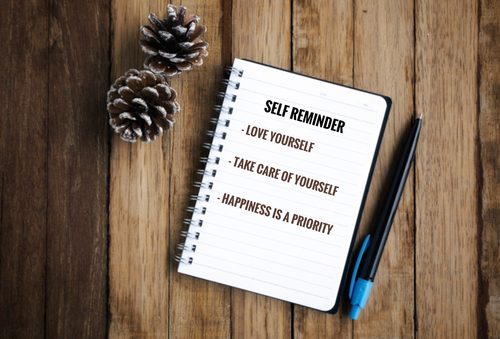Self-Care for Mental Health in Today’s Society
The phrase “self-care” was one of 2017’s mental health buzz terms and for good reasons. As a society, we are working more hours, hooked into our technical devices longer, creating endless piles of to-do lists. This lifestyle impacts self-care and mental health, leading to burnout and emotional exhaustion. The pressure to meet societal expectations through social media further compounds stress as people compare themselves in the race for acceptance and validation.
To combat these challenges, engaging in a meaningful self-care routine has become an important strategy. Self-care for mental health involves intentional practices that support well-being by helping individuals recharge, reduce stress, and develop healthier habits. Taking time for self-care activities—whether it’s regular exercise, journaling, or relaxation—helps restore emotional balance and maintain better health and well-being.
Strategies to Improve Mental Well-Being Naturally
Between friends or colleagues, casual discussions of wine and Netflix binges are the beginner’s version of self-help. Perhaps the goal for 2018 is to take the concept of self-care to a new level.
Let’s be clear, there is no right or wrong way to engage in self-care. But what if the new challenge is to engage in self-care that isn’t just for immediate release but a step towards meeting a larger need? For example, instead of always choosing a Netflix binge, pick up that book you’ve been meaning to read. Instead of always choosing a glass of wine or a pour of bourbon, go to bed early so you can wake up in time for a morning run.
Emotional Wellness Strategies for Lasting Impact
The idea is that self-care is to move beyond quick fixes and embrace practices that create sustainable mental wellness. Emotional self-care encourages us to engage in behaviours that offer more than immediate relief, helping us build long-term emotional well-being. It’s not always easy to prioritize these practices, and everyone, including me, struggles with them from time to time.
By focusing on a meaningful self-care plan, we can address key areas such as emotional health, mental and emotional balance, and overall health and well-being. Whether it’s journaling, daily affirmations, or seeking support from a mental health professional, these activities can foster a deeper sense of emotional resilience. Regular self-care also involves identifying areas of life that need attention and setting aside time to recharge and prevent burnout. Developing these emotional wellness strategies ensures that self-care isn’t just reactive but becomes an essential part of life.
Self-Care Across Different Areas of Life
Financial: Hire an accountant, put $25 additional dollars in your savings account each week, or bring your lunch to work.
Emotional: Journal, seek therapy or engage in daily affirmations.
Physical: Clear your wardrobe, go to the dentist, get that mole checked or that blood work done, learn your sexual turn-ons, or cook more for yourself.
Intellectual: Listen to a podcast on your commute, join a book club, complete the weekend crossword puzzle, or attend a lecture.
Mental Wellness Support Through Self-Care Conversations
So, let’s widen the conversations around self-care to include more than chocolate and Game of Thrones (or ADD it to those fabulous things!). Let’s go a step further. While those moments are enjoyable, meaningful self-care routines also involve engaging in deeper conversations with peers about mental health and emotional well-being. It’s about addressing the gaps in our lives that need attention and taking proactive steps toward better health and well-being.
Developing a sustainable self-care plan requires us to reflect on areas where we can grow, seek support when needed, and practice self-compassion. These conversations can be challenging but are essential for fostering emotional resilience and lasting change. Taking time to connect with others and share experiences around mental wellness ensures that self-care includes both individual efforts and communal support, creating a stronger foundation for overall mental health and well-being.
Prioritize Self-Care and Mental Health for Sustainable Well-Being
Our psychotherapy services focus on self-care for mental health by encouraging long-term strategies to improve emotional, physical, and financial wellness. At Innate Wellness, we believe that true well-being goes beyond quick fixes. Engaging in meaningful activities such as journaling, exercise, therapy, and mindful budgeting creates sustainable habits that support your overall mental health.
By working with a psychotherapist, you can develop personalized emotional wellness strategies and build routines to reduce stress and prevent burnout. Whether it’s through reflective self-care practices or goal-setting, we’re here to support your mental wellness journey.
If you’re ready to take the next step toward better self-care and mental health, contact Innate Wellness today to book your session!






